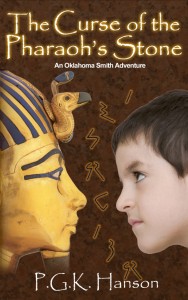 January seems to be query month for me.
January seems to be query month for me.
Last January, I queried my middle grade book The Curse of the Pharaoh’s Stone. It had some interest, but no bites. After my initial list of 50 agents passed, other issues became more pressing, and I did not continue sending it out.
Over Christmas break this past December, I compiled another list of 50 more agents for Pharaoh’s Stone, and am once more on the query-go-round.
Last time around, I wrote and compiled all 50 queries before I sent anything out. Because each agency wants you to send different material, every query is a little different. Some agencies want just a query letter, others want a certain amount of pages, others want a synopsis, and a few have online submission forms. Preparing them all is a time-consuming process.
This year, I am compiling the queries as I go along. I prepare and send about 5 a day, sometimes more, but never more than 5 at a time. I find that if I do any more than 5, I lose focus and make mistakes.
I’m not sure which approach I prefer. Compiling all the queries ahead of time allowed me to send them all out within 5 days. Doing them as I go along will take me longer to get them all out the door. I suspect the total amount of time invested is the same, it’s just a psychological difference—personal preference.
I keep a list of all the agents I contacted in Excel. Name, contact info, submission requirements, date I sent the query, and the result. Because so many agents now have a “no interest, no answer” policy, I also have a column that tracks how many days without a response. Some agents give you a time limit beyond which means they aren’t interested, so this column allows me to see at a glance if we’ve passed the deadline. As I send the queries out, I color code my agent database. Green for those out, red for the passes, and yellow for requests for full or partials. So far I have one yellow. 🙂
Do you find that you tend to query at certain times of year? What’s your query process?

How Many Rejections Is Enough to Give Up on a Story?
While many writers are choosing to go the self-publishing route in order to reap the many benefits of that path, I’m still pursuing the traditional route of trying to get an agent. Thus the newest round of queries I blogged about last week. While I am having decent response, I am also seeing rejections, and I got to wondering: is there a certain number of rejections where you should get the hint and stop querying?
Because I can’t help thinking much farther ahead than I need to (thank you, anxiety disorder), I do wonder what to do if this round of queries doesn’t land me an agent. If no agent bites, that will be over 100 rejections. In the past, that many rejections would probably signal an end to that manuscript’s life, but these days it opens up a new dilemma: Do I put the manuscript in a drawer, or move onto self-publishing?
But do I really want to carry the weight of doing everything myself? That’s the trade off. Although the marketing largely falls to the author no matter which route you take, the initial editing, book design, cover design, and all the formatting is taken care of with traditional publishing. That’s a huge investment in time and money, as well as a steep learning curve.
The good news is that I have 2 coauthors on Pharaoh’s Stone, so this is not a decision I need to make alone. The other good news is that we have a long way to go before we need to have this discussion. We still have 48 agents to hear back from.
If you go the traditional route, at what point do you “give up” on a manuscript finding a home? Is there a magic rejection number?